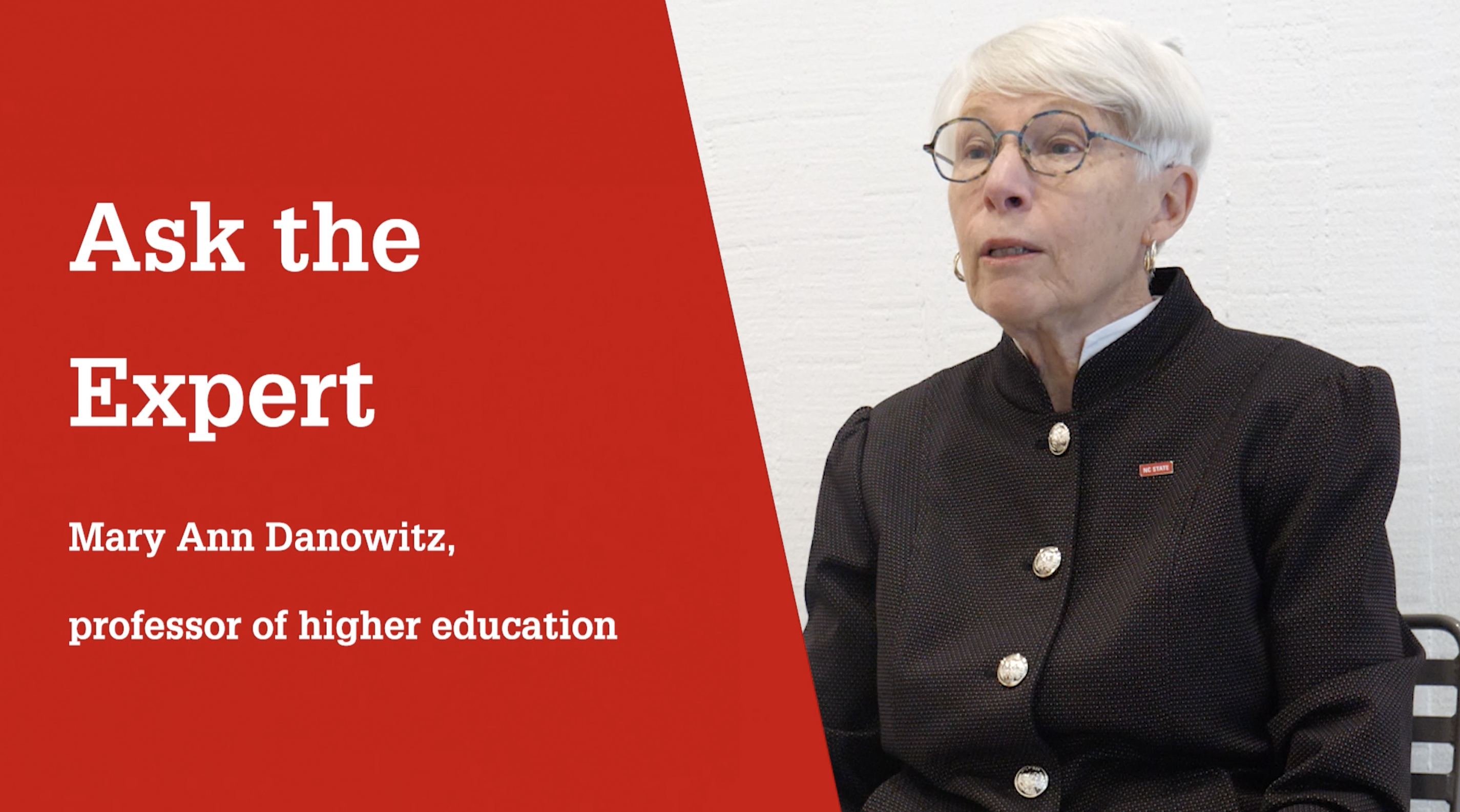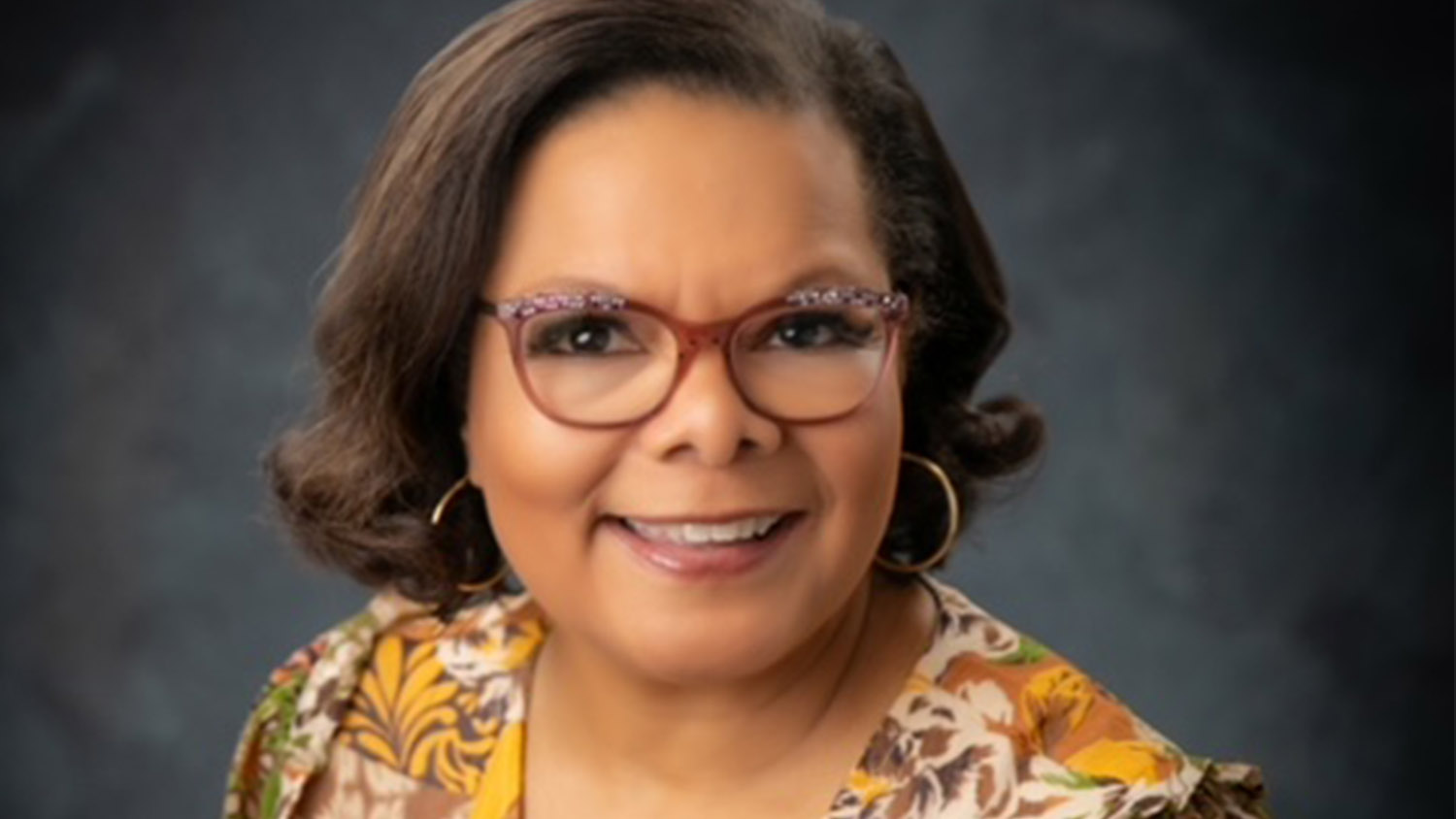How Can One Lead with Inclusive Excellence in Higher Education? ‘To Engage in a Way That is Excellent Means Looking at How We Can Improve the Society and Conditions Around Us,’ Says Dean Emerita and Professor Emerita Mary Ann Danowitz
Integrity, honesty, fairness and self-awareness. These are just a few of the traits that NC State College of Education Professor Mary Ann Danowitz believes a scholar needs to possess in order to be an effective leader in higher education.
But for Danowitz, who is retiring as dean and professor emerita effective July1, leadership also means promoting and relying on the talents of those around her in a way that recognizes all efforts, from research and impact to outreach and engagement – or what she calls inclusive excellence.
“An effective leader will have to encourage creativity, innovation and skill development,” Danowitz said. “We’re a learning organization, so that means we’ve got to do what we can to maximize the talents of others.”
Leading Toward Inclusive Excellence
As an undergraduate student more than four decades ago, Danowitz said she witnessed the ways in which women and people of color were treated differently than white men in higher education. Her research from that point on examined the roles of gender and race to inform an intersectional approach to thinking about how to increase opportunities and possibilities in academia.
Advancing equity in higher education, Danowitz said, means going beyond the standard definitions of productivity.
For example, many faculty engage in outreach or research work that will directly benefit historically marginalized communities even if that work is not shared through publications in top-tier journals or supported by externally-funded grants. However, this work is often not taken into consideration in measures of career advancement.
“To engage in a way that is excellent means looking at how we can improve the society and conditions around us. That means rethinking and moving from narrow definitions of excellence in terms of grants and high-quality publications to looking at research that makes an impact,” Danowitz said. “To move from narrow definitions of excellence to inclusive excellence means really rethinking our structures, policies and practices.”
To be inclusively excellent, Danowitz says institutions of higher education must create a culture of belonging for all their participants and achieve greater relevance to the broader community by both addressing problems that impact society and demonstrating the value colleges and universities provide.
“As a public university, we are supported by individuals who pay taxes, some of whom will never have access to higher education, whether that be at a community college or a four-year institution. By addressing problems that touch their lives, and them knowing how problems are being addressed by our colleges and universities, we can increase our value,” she said.
Promoting Inclusive Excellence on a Global Scale
In her current work, Danowitz is bringing together her research and practice as a higher education leader by serving as an expert advisor for a European Union project to develop a Center for Inclusive Gender Equality, an initiative involving 95 institutions from 22 countries. Through that work, scholars will develop evidence-based research to inform policy and practices that will develop a more inclusive environment to promote the improvement of research and innovation throughout the European Union.
“What’s so exciting is working with researchers and individuals at the level of the European Parliament, chancellors and heads of non-governmental organizations and corporations, to really do the deep, heavy, intense work to become more inclusive,” Danowitz said. “I hope I can draw on my experience and knowledge to continue to be generative. In this role, it means asking questions and building on my experience with organizational change because we’re addressing change on the macro level and the micro level.”
Working internationally is something that Danowitz has not only explored herself, but is something that was important for her to encourage when she served as dean of the College of Education.
It’s important for a higher education leader to promote a global understanding, she said, because if an academic is not engaged with their global colleagues, they cannot truly become a leader in their field.
Danowitz added that she believes it is crucial for future teachers to understand education and their relationship to the world outside the United States.
“I believe that unless a teacher has an opportunity to go outside of the United States, to go beyond their comfort sphere, she can never be the eyes and ears for her future students,” she said. “I had an opportunity to talk with three College of Education students while they were at the NC State European Center in Prague and there was something that each of them said in their own words; that was that the opportunity to visit schools in the Czech Republic has changed the way they will be thinking about teaching and trying to teach. It’s a profound experience, and I would like all of our students to have that.”
- Categories:



